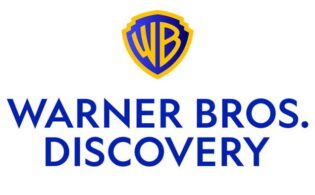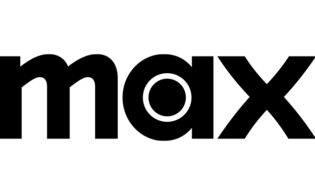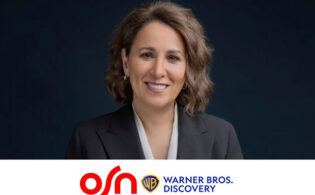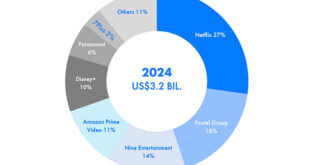On revenues of $11 billion, Warner Bros. Discovery reported a Q4 loss of $2.1 billion following $1.8 billion in asset write-downs and $1.2 billion in merger-related restructuring expenses.
“With the major restructuring decisions behind us, this year we are focused on building and growing our businesses for the future, and we’re off to a great start,” said David Zaslav, president and CEO. “We’re seeing strong momentum across the enterprise, including our exciting long-term plans for DC Studios, the historic success of our latest HBO series The Last of Us, the significant financial and operating gains in DTC, and the record sales of our newest game Hogwarts Legacy. And with our unparalleled portfolio of assets and IP, a growing roster of exceptional creative talent, and some of the buzziest storytelling in the industry, we believe we have repositioned our businesses to take full advantage of the many opportunities ahead.”
Total revenues were down 11 percent (9 percent excluding foreign currency impacts). The Studios segment delivered revenues of $3.8 billion, down 23 percent ex-FX, with content revenues falling to $3.6 billion, largely to lower TV licensing revenues. At the Networks segment, revenues were down 6 percent ex-FX to $5.5 billion, with ad revenues down 14 percent ex-FX to $2.2 billion, distribution revenues falling 2 percent ex-FX to $2.9 billion; and content revenues rising 7 percent to $307 million. Direct-to-consumer revenues were $2.4 billion, rising 6 percent ex-FX, including ad revenues of $123 million (a 75 percent bump), distribution revenues of $2.1 billion and content revenues of $243 million, a 28-percent gain driven by higher third party licensing of HBO content. The company ended Q4 with 96.1 million DTC subs. a gain of 1.1 million, with 54.6 million in the U.S. and 41.5 million internationally.
“Last year was a year of restructuring; 2023 will be a year of building,” Zaslav said on an investor call. “In today’s increasingly dynamic and crowded media environment, the best hand has great storytelling IP, brilliant creatives, a full slate of production and distribution capabilities and broad global reach that stretches across premium, pay TV, the free-to-air, theatrical streaming, licensing and gaming. The entirety of the ecosystem. And that is exactly the hand that we have, and we intend to play it decisively and with a focus on free cash flow and an eye toward sustainable future growth.”
“We are making meaningful progress on our goal to achieve real profitability in streaming—a key and powerful segment of our company,” Zaslav continued. “We brought our losses down considerably and are even more confident in the financial targets we laid out a few quarters ago. We reduced EBITDA losses by $500 million year over year to $200 million in Q4, supported by 1.1 million net sub adds in the quarter.”
The combined HBO Max and discovery+ streamer—as yet unnamed—will roll out in the U.S. and Latin America this year, with EMEA and AsiaPac to follow in 2024. “The product will offer compelling content for every member of the household, SVOD and ad-lite tiers and a significantly enhanced product platform to drive better performance, improved user experience and stronger engagement.” Details of the merged service will be revealed April 12.
During the call, Zaslav revealed that more Lord of the Rings movies are in the works at Warner Bros. and highlighted the multi-year plan for DC Studios across film, television and animation and the strengths of the company’s gaming business.
“Linear ad sales is a top priority at the moment, particularly as we balance both cyclical headwinds and ongoing secular challenges, much of which we’ve dealt with for the last several years,” Zaslav continued. “We contended with some share shifts away from our portfolio during the NFL, college football season and the World Cup. We are still in the early stages of bringing this comprehensive portfolio together and harnessing all that it can deliver. I’m confident that we will get there, particularly with some of the operational and content-driven initiatives implemented by Kathleen Finch and her team. They have great plans to revitalize the mix and have also begun to use our exceptional library of film and television content in a way that will benefit our linear and cable networks.”
Discussing the strength of the television output across the company, particularly HBO’s latest megahit, The Last of Us, Zaslav noted: “The best way to drive interest and engagement is not by dropping the entire season on a platform all at once, but by allowing the buzz and anticipation to build over time. And it’s the same principle with theatrical. Perceived value of content increases when there’s a great expectancy and excitement. People want to be part of something, and when you tell them a great story and they get to experience it with others, either in a packed theater or on a Sunday night, it really is magic.”
Zaslav concluded: “We believe we have the strongest hand in the industry, with the most complete portfolio of assets, globally renowned franchises, personalities and storytelling IP across sports, news, nonfiction and entertainment in virtually every region of the globe and in every language. We have an exceptional leadership team that is truly aligned across a common set of strategic, operational and financial goals and metrics. We are the largest maker and seller of content in the world, and while we’ve got lots more to do, we are increasingly seeing positive traction and strong proof points. For us, 2023 is a year of building. We are more confident than ever that we have the right strategy to be successful and ultimately achieve our goal of being the greatest media and entertainment company in the world.”






